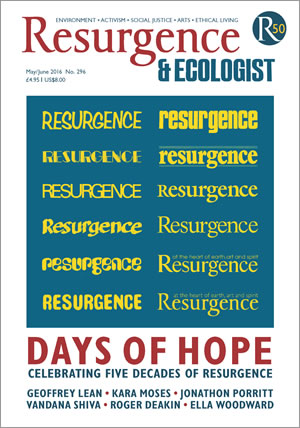We typically think of human values as being shaped by culture. We take them to emerge from some combination of religious traditions, familial upbringing, art, advertising and other similar factors. Ian Morris argues otherwise in the stimulating Foragers, Farmers and Fossil Fuels, situating our values firmly within the material world. He contends that they are shaped by the way we capture energy, and that values “cannot be separated from the concrete world in which they are held”.
Morris takes an impressively broad sweep to argue his case, splitting the entirety of human history into what he sees as the three main eras of energy capture: foraging, farming and burning fossil fuels. Going into hyper-detailed analysis, he concludes that foraging societies were violent but egalitarian; farming societies were hierarchical but less violent; and fossil-fuel-consuming societies have moved us back towards egalitarianism, in attitudes if not economics.
“Each age gets the thought it needs,” he repeats, suggesting that egalitarian organisation worked best for foragers, and that hierarchy worked best for farmers. Neither society was wrong or deluded, he explains. It simply adopted the values that suited it. He anticipates allegations of moral relativism by claiming that these apparently stark differences are just different interpretations of universal values such as love, hatred and fairness; that they are chosen to create the most productive overall outcomes in a society reliant on a particular energy source.
Whatever you think of that, the material facts of energy extraction undoubtedly have some bearing on our societies. The development of the coal-powered steam engine – marking the start of the Industrial Revolution and the fossil-fuel era proper – is tied to the advent of capitalism. Prior to coal, bosses were reliant on water mills, working to the whims of river flow and against the stronger bargaining power of smaller rural populations. The ability to produce constant, reliable power in city-based factories provided bosses with a glut of workers desperate to avoid poverty, marking a fundamental leap towards a form of capitalism that has more or less lasted until today.
Considering this example, it’s perhaps more tempting to say that our energy extraction shapes our socio-economic organisation, which in turn shapes our values, rather than saying that our energy extraction shapes our values directly. But this feels like splitting hairs. Whether direct or slightly removed, the link between energy extraction and human values is convincingly made, even if we argue over its precise causality.
This might come as unwelcome news to those of us in the business of shaping people’s values. If we are to believe that our values are shaped primarily by our energy sources, to try and shift societal attitudes through culture would seem like a losing game. Are our values more or less fixed so long as we are reliant on fossil fuels?
Morris devotes a chapter to speculation about the future of energy capture and values. “The next hundred years will see more change in human nature, and human values, than the previous hundred thousand,” he tells us. But he’s unspecific about what he thinks will actually happen. He explores the posthuman futurism of thinkers such as Google’s Ray Kurzweil (who sees humankind becoming a shared, digital consciousness within decades) alongside the possibility of nuclear winter or globalised Malthusian collapse. But there are no firm predictions.
Interestingly, he makes little reference to a future built on renewable energy, in which the material facts of energy extraction would undoubtedly be different. Energy production would be localised and hopefully democratised. It would also be reliant, to some extent, on the patterns of Nature. And, while I wouldn’t want to speculate about what values might emerge from a renewably powered world, if we accept that fossil fuels shaped the socio-economic framework of the last 200 years we can be confident that renewables would shape a very different one. They could undermine the present form of capitalism, crumble monopolies of money and power, and bring about a much more decentralised economy.
Renewables campaigners often see their real task as being to shift values before we can begin a mass rollout of solar, wind and tidal power. On this, Morris’ conclusions offer some optimism. The material facts of renewable energy generation could themselves contribute to the values shift we need to see. Suddenly, a problematic chicken-and-egg situation becomes a virtuous circle. Solar panels and wind farms wouldn’t just create a safer climate. They would also create a very different human society.






